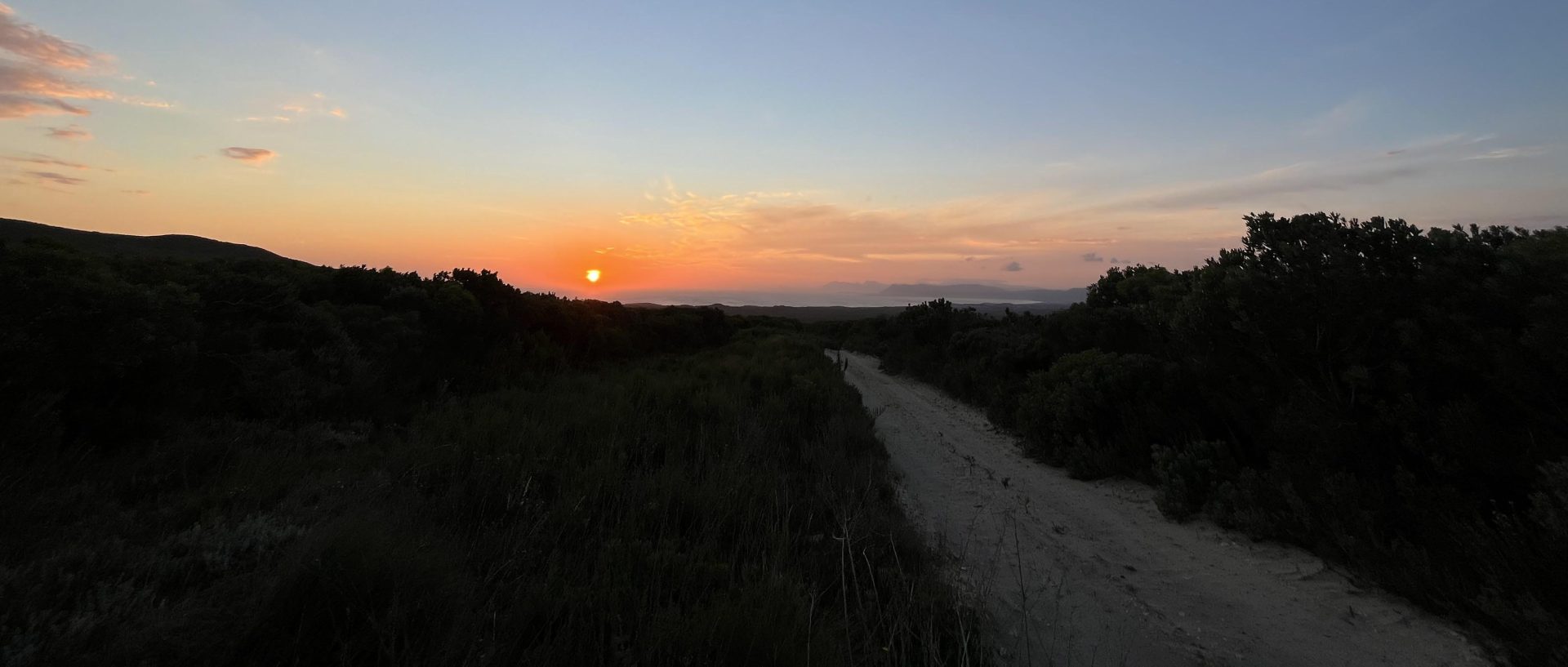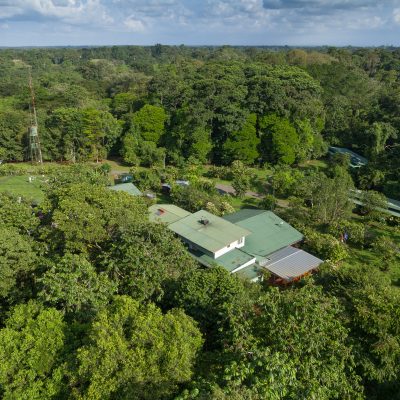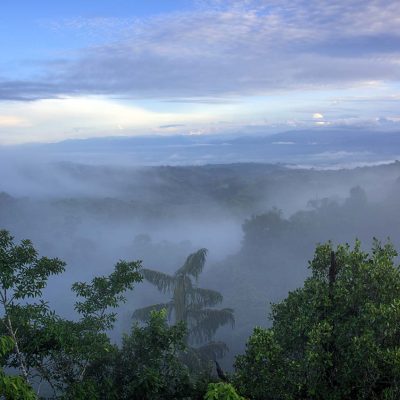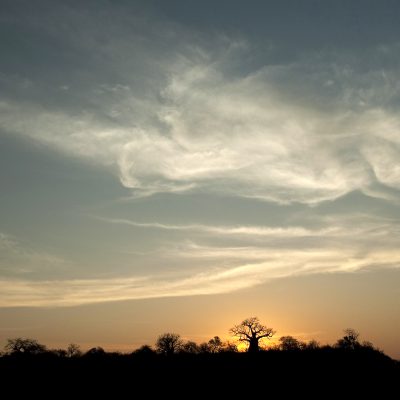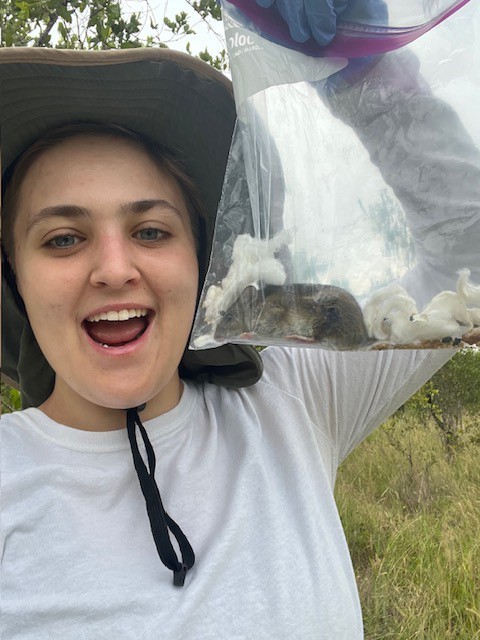
Major: Environmental Science
Home School: Wheaton College
OTS Program: African Ecology and Conservation
Spring 2024
Emelia Pettit
“This is one of few abroad programs that exposes students to a variety of habitats and ecosystems. You get to travel and meet new people while developing research skills.”
1. Wheaton offers a tropical field biology course that allows students to dip their toes into the world of ecological research abroad. We stayed at La Selva. The food and accommodations were quite nice and I felt comfortable with the program.
2. My professor was a big proponent of OTS because it has a more rigorous curriculum than some of the other abroad field schools Wheaton has partnerships with.
3. I wanted to strengthen my research skills since I go to a small liberal arts college, where very few research opportunities exist.
4. Location. South Africa is pretty LGBT-friendly and as a gender-non-conforming person I felt safe traveling to South Africa
I really enjoyed seeing the massive baobab in HaMakuya. We measured it against our collective wingspan, took guesses on the age, and spent a considerable amount of time exploring it. I found the whole thing to be powerful and really exciting. Before this trip I thought all succulents were small fleshy blobs.
This is one of few abroad programs that exposes students to a variety of habitats and ecosystems. You get to travel and meet new people while developing research skills. It helps students to establish post-undergraduate plans and exposes them to many areas of study within conservation.
I studied the interactions between A. swazicum (an endangered flowering plant in Kruger) and the park’s herbivores. After a semester of personal and academic growth, it was exciting to present our findings to the South African National Parks System. I am so grateful to have spent a semester living in Kruger National Park, so it felt good to tangibly give back to the wildlife and its protectors by addressing crucial research gaps.
Coral reefs form the second most diverse ecosystem on the planet. They host around 25% of marine life and provide sustenance to indigenous communities such as Melinesians, Gunadules and Torres Straight Islanders. Unfortunately, scientists project that around 90% of corals will have undergone bleaching by 2055.
I believe that Astrangia poculata, Southern New England’s only coral, may hold the key to preserving tropical corals. This species is known to continue thriving after bleaching events. I hope to get my PhD assessing the impact of temperature on population dynamics and genetics in bottom-up scenarios.

